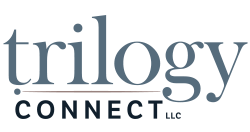One of the lessons of the past few years is a recognition that work can be elevated through collaborative action. We saw it everywhere – sharing best practices, developing formal and informal networks, reaching out across the digital divide. But in the absence of a compelling, urgent need - like the crisis of a pandemic- many organizations have fallen back on the same approach to problem solving they had before the pandemic. Over recent months, this trend has become most apparent at the governance level. While the board of directors can be one of the most critical tools to move an organization forward, it requires the development of a new skillset to engage the board differently than in the past.
To do that, it’s essential for boards and leaders to work together to bring perspectives to the table, to develop alignment around potential opportunities, and engage in work that elevates the organization to new levels. And to ensure that board members can fully participate in the work, it’s important to frame information in a way that invites the unique viewpoint of the board member as a member of the broader community, a practitioner with a skillset, or perhaps a present or future customer. Developing progressive and generative discussions using the collective insight of the group builds a story that leads the board to making critical decisions.
Consider the answers you may get to generative questions like:
· What is the most difficult thing for us to discuss as a board?
· What did we know before the pandemic that we should have acted on? What do we now know that we aren’t addressing?
· Is our historical provision of service the only way to achieve our mission?
· Is partnership a way to more effectively advance our strategic plan?
· What is our customer telling us about our services?
These critical governance discussions can often lead to a recognition of an expanded approach for the organization, a re-casting of the mission, and a true discernment of opportunities that may not have previously been considered. And, ultimately, the fulfilment of the board’s strategic, generative and fiduciary responsibilities that ensure the well-being of the organization for future generations.


